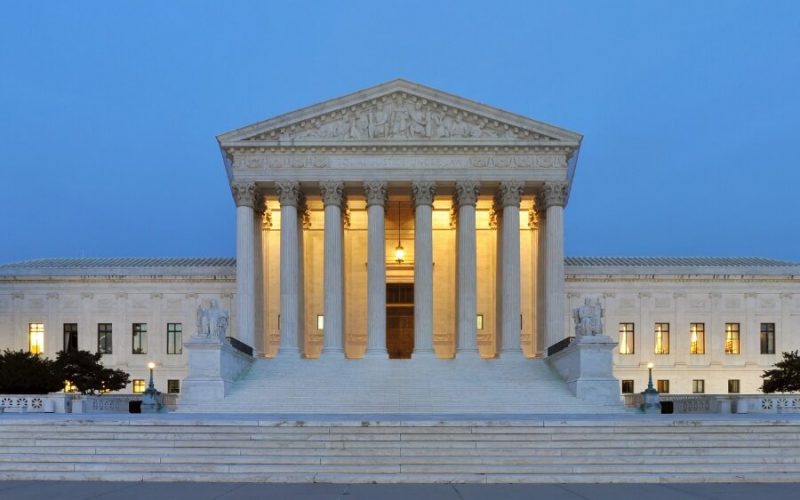The U.S. Supreme Court has intervened in the legal dispute over a recently passed Texas immigration law. This law would enable state law enforcement officers to arrest migrants who enter the state illegally.
The U.S. Court of Appeals for the 5th Circuit issued a temporary hold on an earlier decision that had halted the enforcement of the law. The latest ruling from the Supreme Court will pause the law’s implementation until March 13.
The contentious law permits the prosecution of migrants who ilegally enter Texas and includes a mechanism for their removal from the country during the sentencing process. A temporary order, issued on Saturday by the federal appeals court, would have enabled the enforcement of the law after a seven-day period if the U.S. Supreme Court hadn’t intervened.
Within hours of the Justice Department’s request for intervention, Supreme Court Justice Samuel Alito issued the latest order temporarily halting the implementation of Texas SB4.
Recent legal battles in federal courts regarding the enforcement of Texas’ new immigration law have resulted in the law being blocked, reinstated, and ultimately put on hold by the Supreme Court. Last week, Senior U.S. District Judge David Ezra in Austin halted the implementation of Senate Bill 4, originally scheduled to take effect on March 5, citing the federal government’s authority over immigration law enforcement.
In his decision, Ezra stated, “For the past century, Texas has relied on its expansive police powers afforded to it under the Constitution to regulate crime within its borders. Texas may continue to do so, but it cannot regulate the federal field of unlawful entry and removal.”
Texas appealed Ezra’s ruling, which led to a federal appeals court decision on Saturday granting a seven-day hold on the law’s enforcement. This allowed the Biden Administration to take the matter to the United States Supreme Court. If the Supreme Court had not intervened, the law would have taken effect on March 9 under the appeals court ruling, overturning Ezra’s initial order.
Texas SB4 mirrors a current federal statute under Title 8 of the United States Code 1325, which makes illegal entry into the United States a misdemeanor offense for a first-time offender and a felony for a second offense. Under the Biden administration, the federal statute is not pursued to any significant degree.
Under the new law, migrants may agree to return to their home country as part of their sentencing agreement. A similar process in federal courts is known as Stipulated Removal, where a migrant may waive their right to a separate administrative immigration hearing agreeing to removal from the United States as part of the sentencing process.
The law may face an uphill battle when reviewed by the Supreme Court. In 2010, a similar immigration law signed by then-Arizona Governor Jan Brewer would have made illegal presence by a migrant and unlawful employment by a migrant in the state a misdemeanor crime.
Supreme Court Justice Kennedy ruled in the majority opinion blocking that law, stating that several provisions of SB 1070 infringed upon the supremacy of the federal government to regulate and enforce immigration laws.
Share your thoughts by scrolling down to leave a comment.

